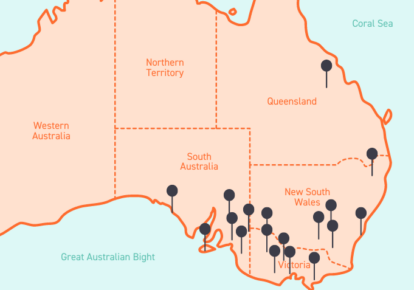We know people are busy, so we’ve brought our thoughts on this complicated topic onto one page.
A market player’s exposure to spot price is good enough to be considered firm
Throughout the evolution of the RRO, there has been discussion on the firmness of derivatives. For example, under the current proposed rules a swap derivative will be treated as firm because it protects the purchaser from high spot prices. The “firmness” is based on the seller of the derivative into the market being exposed to the spot price, meaning there is a price incentive to back the derivative with actual generation. However, the RRO does not enforce any obligations to demonstrate how this seller has physically backed the derivative and exposure to spot price is considered enough.
Consumers must physically demonstrate firmness
Contrastingly, a consumer that chooses to expose themselves to the same spot price will be subject to an entirely different set of rules. This is proposed to be measured through complex engagement, registration and baseline methodologies which are likely to constrain the value of demand response.
This creates an inequity between market players and consumer
As a result, consumers will be at a disadvantage to those selling derivatives. While both are exposed to the same price signals, they will interact with the market under different rules. This is despite Flow Power’s repeated experience that consumers are more likely to physically deliver in response to a high spot price event compared to a hedge provider, which will write contracts based on financial risk appetite without the need to back them physically with generation.
In summary
Such inequity undermines the RRO objective of encouraging investment to maintain reliability. Consumers exposed to spot price are incentivised to avoid costs and arguably, can respond in a much shorter time-frame than it would take to construct a new power plant.
The electricity market faces unprecedented challenges as it transitions to large volumes of variable generation. For this transition to be successful, it is essential energy consumers are encouraged to respond to variable generation. The most efficient way to achieve this is for consumers to respond to the spot price.
The RRO in its current form discourages this behaviour in favour of market-led solutions. This will:
- Discourage existing consumers already actively managing their price risk through demand response
- Reduce the take-up of demand response
- Discourage consumer-led innovations and solutions to managing site loads and improving system reliability from entering the market
- For consumers to purchase more expensive and less efficient firming options from the market
Ultimately, this will lead to significantly higher costs for consumers, who would have managed their own price risk, passing on higher costs for all consumers due to a less efficient market.
Flow Power fully encourages all steps that lead to greater reliability and investment in firming generation within the market. It is essential that the RRO achieves this goal and to do this it must treat all players equally, providing the same signals and incentives across the market without disadvantaging one party over the other.
Any questions? We’re here to help.
If you’re interested in learning more about the RRO, our friendly team are always available for a chat.
If you’re an existing Flow Power customer, please do not hesitate to reach out to your account manager.
If you’re not a Flow Power customer contact our friendly team today:
? 1300 08 06 08 (within business hours)
?️ Live chat message (within business hours via the chat button at the bottom of your screen)
Alternatively, you can submit your questions through our website contact form here.














